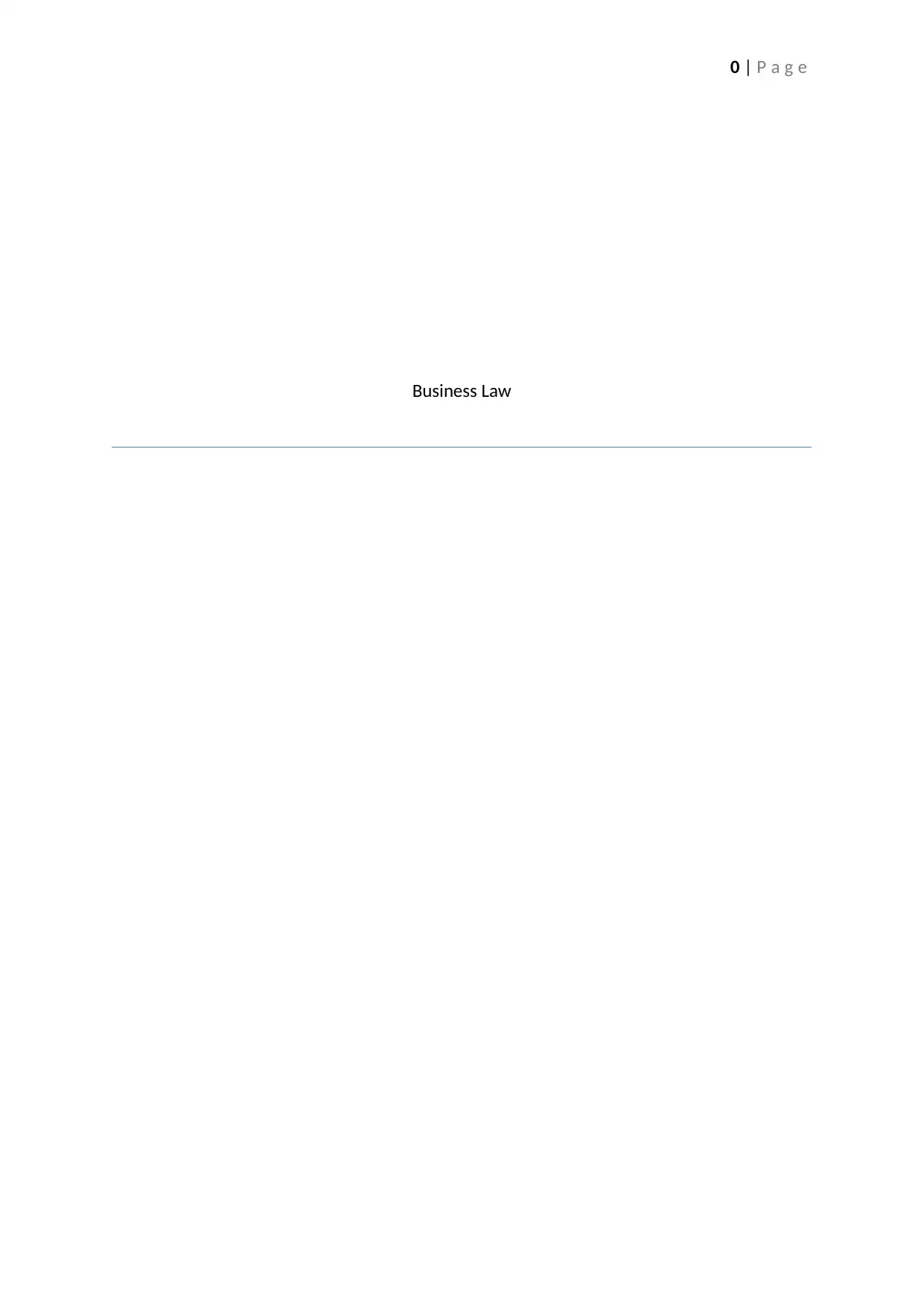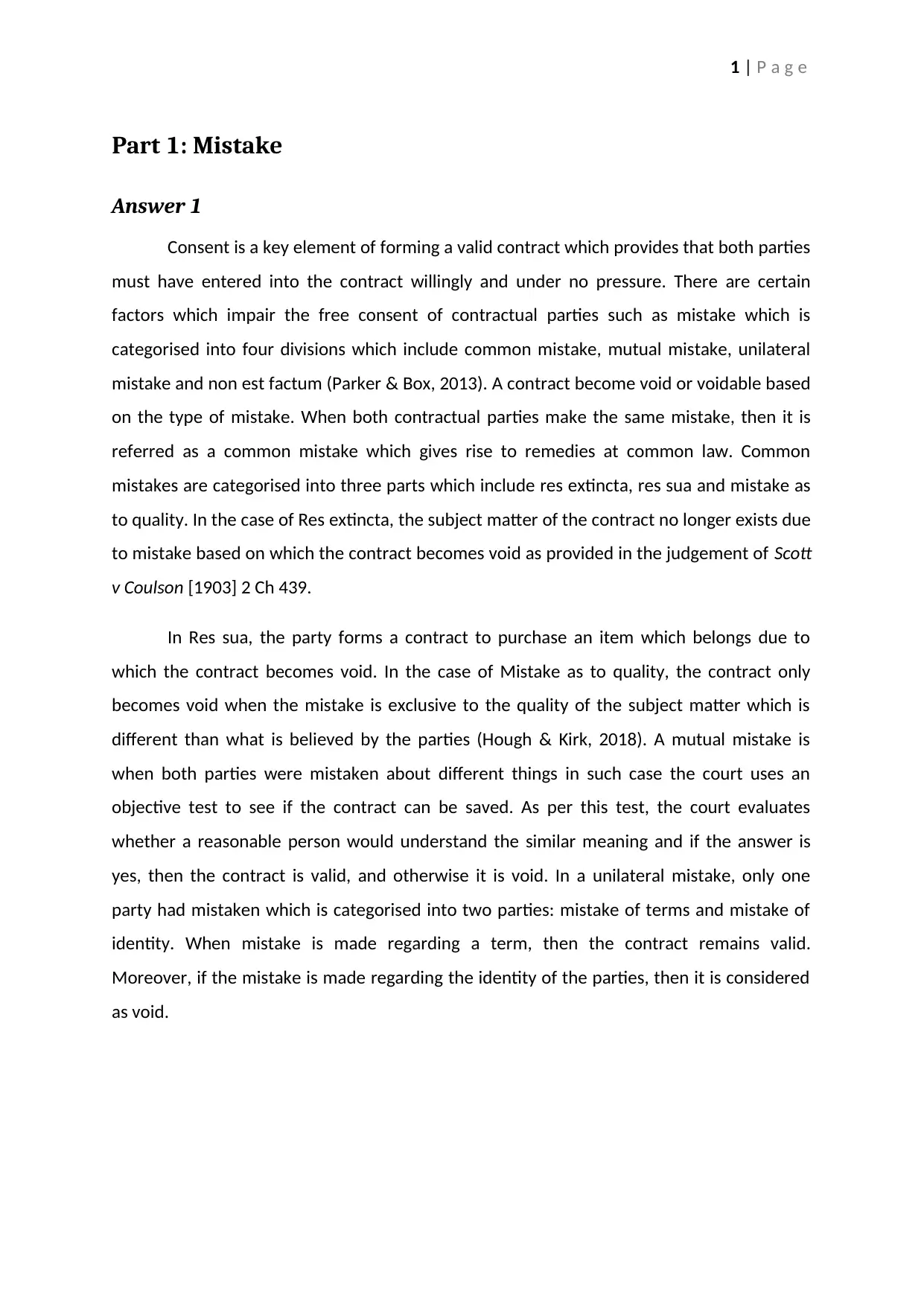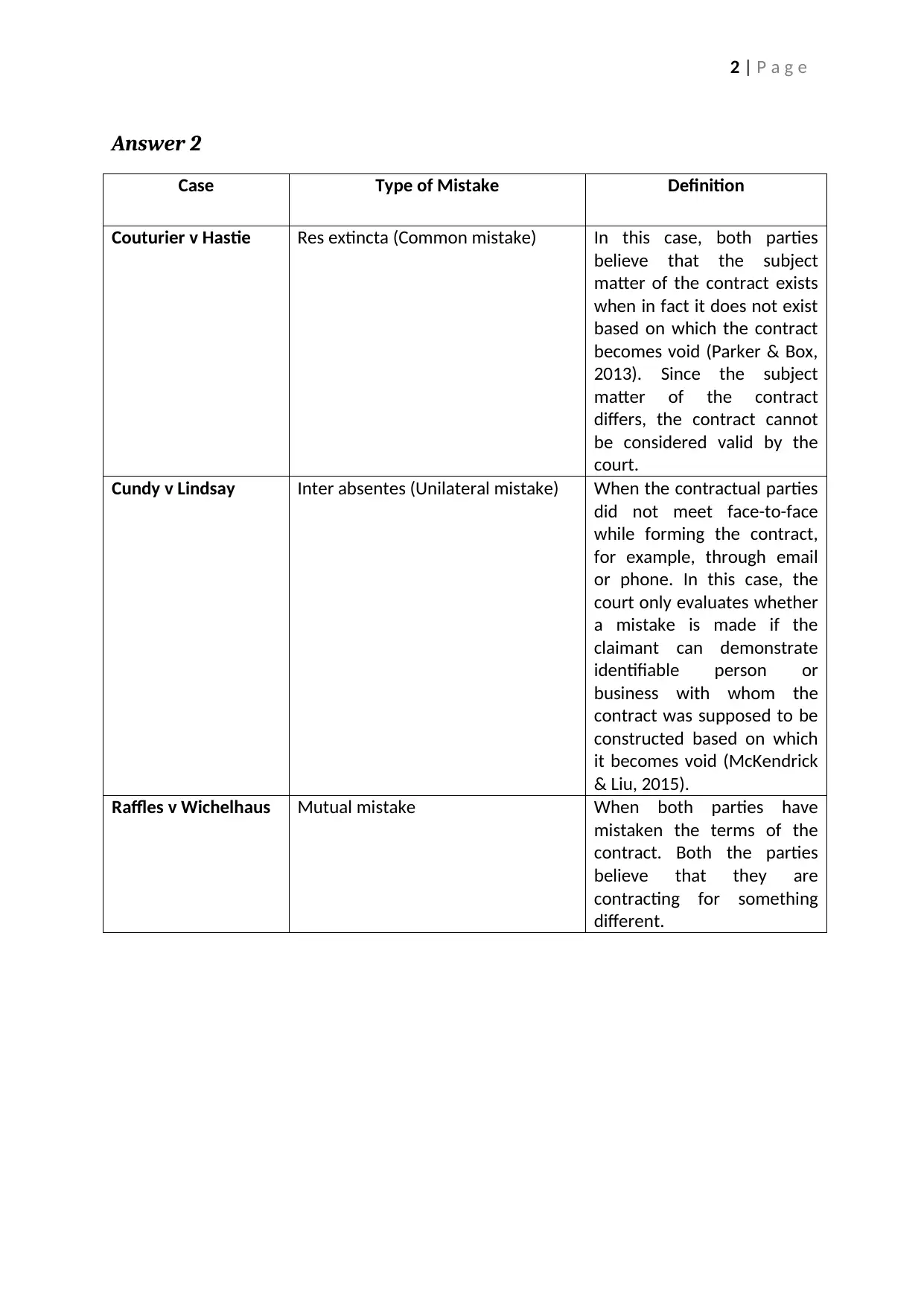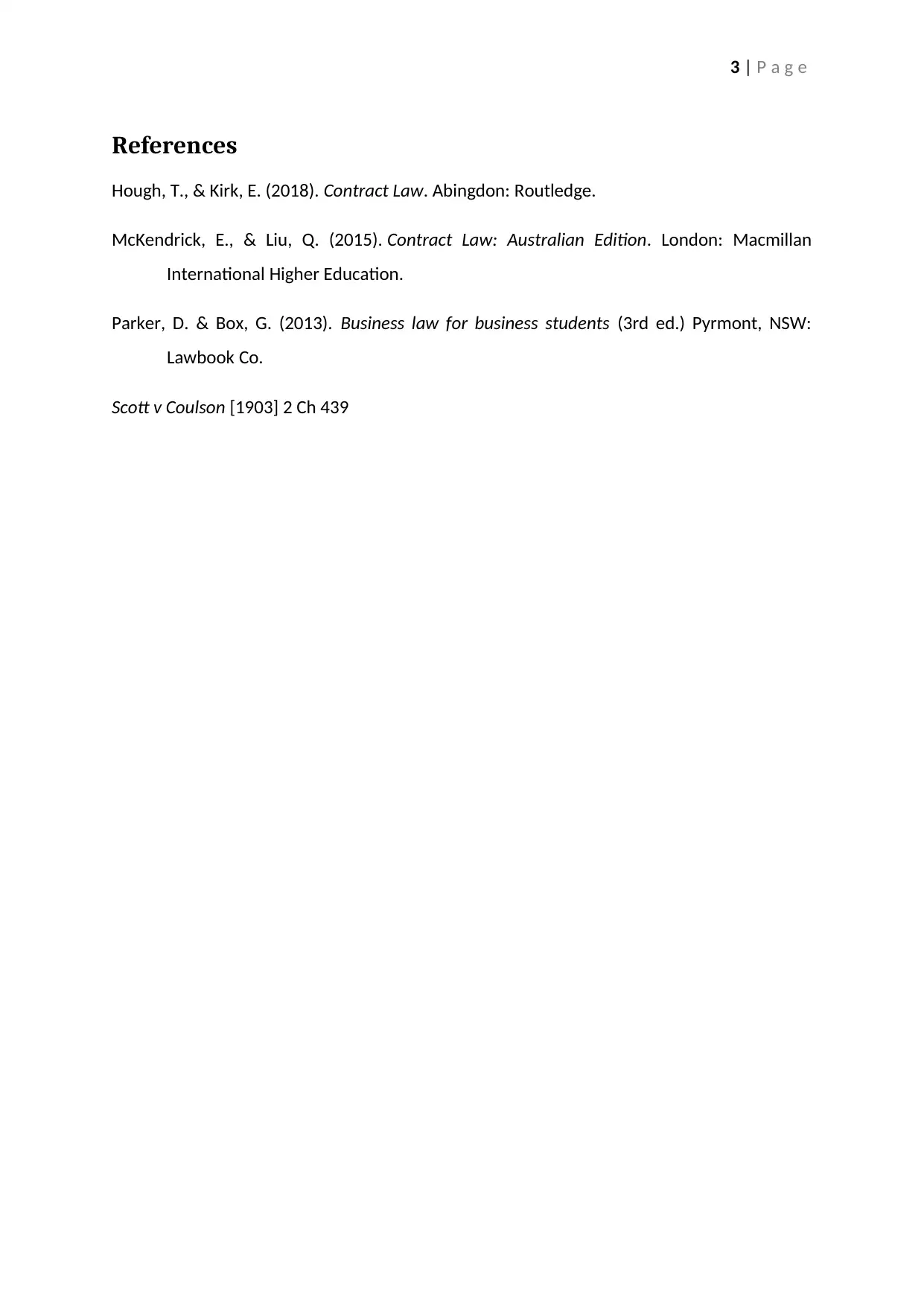Business Law Tutorial: Mistake, Duress, Undue Influence, and Conduct
VerifiedAdded on 2023/04/20
|4
|634
|319
Homework Assignment
AI Summary
This assignment solution addresses key concepts in business law, focusing on the elements of consent within contract formation. The first part of the solution examines the impact of mistake, categorizing it into common, mutual, and unilateral mistakes, and providing case examples such as Couturier v Hastie, Cundy v Lindsay, and Raffles v Wichelhaus to illustrate these concepts. It clarifies when contracts become void or voidable based on the type of mistake. The second part of the assignment brief addresses duress, including its types and legal effects, as well as undue influence and unconscionable conduct, with a focus on the legal effects of each. The solution defines these terms, explores scenarios where undue influence is presumed, and answers problem questions using the IRAC method, providing a comprehensive analysis of these critical areas of contract law.
1 out of 4









![[object Object]](/_next/static/media/star-bottom.7253800d.svg)